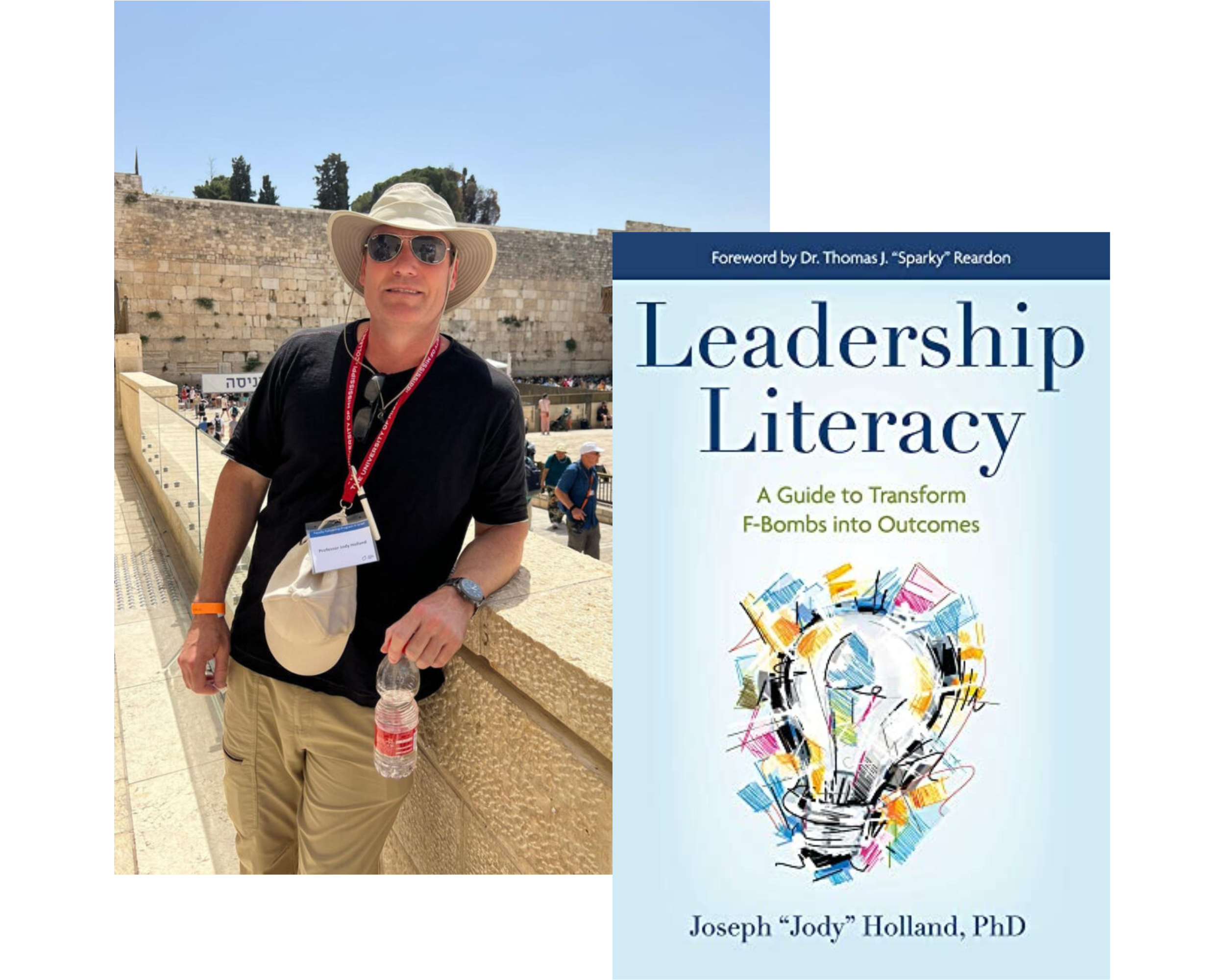The Sullivan Foundation has a long and distinguished history of recognizing those who lead with purpose and serve others. At the forefront of its investment in and development of young leaders destined for impact is the Sullivan Fellows Program, a unique three-year leadership experience. Through mentorship, hands-on experiential learning, and a robust framework, this program equips students to make meaningful change in communities.
Dr. Jody Holland, who directs faculty outreach for the Foundation and teaches public policy at the University of Mississippi, played a pivotal role designing the Fellows Program. “The Sullivan Foundation has long celebrated selfless leaders,” notes Holland. “This program expands on that by outfitting students with leadership tools applicable anywhere.”
Structured around the ARC Model—Agency, Relationship, Contribution—the Fellows Program is designed to transform its participants over a period of three years. According to Holland, the model empowers Fellows to gradually embrace leadership roles, build community ties, and ultimately make lasting improvements.
Divided into three stages, the program challenges students to apply the lessons learned during each phase as they grow as leaders with a focus on service.
The initial stage is one in which the Fellows look inward, cultivating self-awareness and vision. As they move to the next stage they set their sights outward, honing their relationship-building and networking skills. By the final stage, the Fellows launch problem-solving and changmaking projects addressing real issues in their respective communities.
Year One: Discovering One’s Potential
As newcomers to the program, students embark on a journey of self-discovery. Each is paired with an experienced guide to help navigate this initial phase of understanding their unique talents and how to cultivate strengths. Through a curriculum focused on introspection, students begin to recognize innate abilities and gain foundational skills for leadership. As Holland explains, “This first step allows one to see leadership from within before tackling external challenges.” Team activities and panels introduce diverse role models, demonstrating that leadership takes many forms. By year’s end, a foundation has been formed to support future growth.
Year Two: Weaving Connections
Relationships take priority in the second year, both within the cohort and further afield. Experiential learning activities place the Fellows in surrounding communities, so they might apply strategies for constructive engagement. Holland elaborates, “Students hone the art of building relationships that empower. Economic projects provide hands-on insights into how leadership can positively impact lives at a local grassroots level.” Asset mapping and stakeholder inclusion are also initiated, teaching methods to understand needs and collaborate to bring about desired solutions. Mentorships are also part of the process, better equipping the Fellows to transfer their classroom lessons into the real world.
Year Three: Contributing as Changemakers
This final stage of the Fellows Program is where the Fellows should make their most impact. They are tasked with conceptualizing and executing upon a new business venture, with the intent to bring about sustainable change. “This represents the culmination of all they’ve mastered,” explains Holland. “They will be applying their abilities to generate genuine, tangible transformations in their neighborhoods.”
The Fellows develop an “E-portfolio” containing a management profile, neighborhood influence maps, and a private life entrepreneur plan. These deliverables function as evidence of their progress and can be shared with potential employers. “By the time they graduate, our Fellows are five to seven years ahead of their peers in regard to leadership experience and preparedness,” Holland notes.
Expanding the Reach of the Fellows Program
At present, the Sullivan Fellows Program is active at 12 colleges and universities within the Sullivan Network of Schools, with 77 students participating as of August 2024. Within the next two years, this number will grow to 144 Fellows at these same institutions. The participating schools currently include Belmont, Barry, Brevard, Campbell, Converse, Ferrum, Lees-McRae, Lincoln Memorial, Mary Baldwin, North Carolina Wesleyan, the University of Mississippi, and Warren Wilson.
“The demand for this program is increasing,” says Holland. “We’re hearing from more and more schools that want to be part of it because they recognize the value it brings to their students and communities.”
While the Sullivan Foundation’s Fellows Program is currently only offered at schools within the Sullivan Network, there are opportunities to broaden its scope. Holland mentioned that new schools outside their existing network would be considered if they align with their mission and are located in the Southern United States.
The Sullivan Fellows Program equips students with diverse leadership resources. Fellows are first introduced to complex leadership concepts through structured curriculum using Holland’s book, which helps them confront challenges like doubt in their abilities. Each Fellow also receives personalized guidance from a dedicated coach who provides feedback to support their growth. Additionally, each school designates a liaison to assist Fellows in navigating opportunities on campus.
In their second year, Fellows actively engage in community projects in Asheville, NC, gaining practical experience in economic development, public engagement, and grassroots leadership through experiences in the region. During the third year, Fellows independently implement entrepreneurship initiatives applying their skills to create lasting change, allowing them to put leadership into action.
The program also includes participation in the Sullivan Foundation’s Ignite Retreats, which are held biannually in North Carolina. These retreats offer Fellows supplementary opportunities to bond with peers, take part in leadership exercises, and learn from experienced social entrepreneurs.
Building a Lifelong Network
One of the key strengths of the Sullivan Fellows Program is the networking opportunity it presents for students. Fellows are afforded the chance to connect with their peers throughout the Sullivan Foundation’s Network of Schools, cultivating relationships that will benefit them throughout their careers. “The links they forge here are invaluable,” notes Holland. “They’re learning not just from their own experiences; they’re also learning from one another, and that is incredibly powerful.”
The program also sets Fellows up for future employment by assisting them in developing a range of talents that are highly valued. These include emotional knowledge, cultural sensitivity, and the ability to lead and manage projects. The E-portfolio that Fellows build over the course of the program is the tangible result of their evolution and progress, showcasing their skills to potential employers and community partners.
The Role of Educators and Community
Instructor and community participation is crucial to the success of the Fellows Program. Each participating school assigns a campus liaison, who receives a stipend from the Sullivan Foundation for their part in supporting the Fellows. These liaisons play a key role in recruiting students, coordinating program activities, and guaranteeing that Fellows have the assets they require to succeed.
The Sullivan Foundation works “hand-glove” with partner schools to ensure faculty are engaged with their Fellows Program in a meaningful way. “We know faculty have many demands on their time, so we don’t want to overburden them,” explains Holland. “Still, their involvement is crucial for cultivating an atmosphere where students can thrive.”
It’s important to note that the Fellows Program presents funding opportunities for donors seeking to invest in tomorrow’s leaders. According to Holland, endowments provided by the Foundation at some of the universities help support costs associated with the program; however, individuals and companies can directly sponsor a Fellow for $1,500 a year.
Looking ahead, the Sullivan Foundation’s vision is to continue to expand the program to recruit more Fellows and positively impact more communities. “We’re only just starting,” says Holland. “Our goal is ongoing growth – serving additional students and ultimately making a greater contribution to the communities we involve.”
Steve McDavid, president of the Algernon Sydney Sullivan Foundation, shares this vision. “The Sullivan Fellows Program was established to ensure that the values of dedication, integrity, and leadership continue guiding future generations,” said McDavid. “By equipping students with the tools and experiences necessary to lead with compassion and care, we’re helping them thrive while also positively impacting the world for years to come.”
The Sullivan Fellows Program stands as a reminder of the Foundation’s steadfast pledge to fostering principled leadership, civic duty, and social accountability. Through this initiative, the Sullivan Foundation honors its legacy while paving the way for a brighter future led by a new generation of empathetic, capable, and devoted leaders committed to bettering their communities.
Back to all News items.


